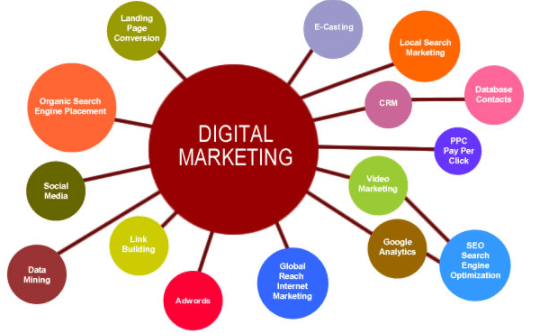Digital marketing is the component of marketing that utilizes internet and online based digital technologies such as desktop computers, mobile phones and other digital media and platforms to promote products and services.
At a high level, it refers to advertising delivered through digital channels such as search engines, websites, social media, email, and mobile apps. Using these online media channels, it is the method by which companies endorse goods, services, and brands.
Its development during the 1990s and 2000s, changed the way brands and businesses use technology for marketing. As digital platforms became increasingly incorporated into marketing plans and everyday life, and as people increasingly use digital devices instead of visiting physical shops, marketing campaigns have become prevalent, employing combinations of search engine optimization (SEO), search engine marketing (SEM), content marketing, influencer marketing, content automation, campaign marketing, data-driven marketing, e-commerce marketing, social media marketing, social media optimization, e-mail direct marketing, display advertising, e-books, and optical disks and games have become commonplace. Digital marketing extends to non-Internet channels that provide digital media, such as television, mobile phones (SMS and MMS), callback, and on-hold mobile ring tones. The extension to non-Internet channels differentiates digital marketing from online marketing.
How do I become a digital marketer?
- Attend Networking Events.
- Learn from Marketing Brands and Entrepreneurs.
- Connect with Like-Minded Individuals.
- Find a Marketing Internship.
- Become a Member of a Professional Body.
- Stay Up to Date on the State of Marketing.
- Practice Continuous Learning.
Types:
- Search Engine Optimization
- Pay-per-Click
- Social Media Marketing
- Content Marketing
- Email Marketing
- Mobile Marketing
- Marketing Analytics.
Advantages:
- Low cost: Marketing and advertising cost is one of the biggest financial burdens that businesses have to bear.
- Huge return on investment.
- Easy to measure.
- Easy to adjust.
- Brand development.
- Easy to share.
- Precise targeting.
- Global.
Disadvantages:
- Skills and Training.
- Time-consuming.
- High Competition.
- Complaints and Feedback.
- Security and Privacy Issues.





